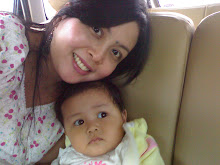| Parents often think the kids who will do best at school are the ones who are already starting to read and write. But teachers say its kids who can get on well with other children, look after their own belongings and follow directions who settle in well. Research shows that children don’t need to be formally taught to read before starting school – being read lots of books and having rich and interesting preschool years produces kids who are ready to fly academically. Routines
At preschool, your child has a fair amount of freedom to choose his own activities, but at school he has to follow the classroom routine – which dictates when it’s time to sit, read, write, eat, talk and play. If your pre-school has included structured times on the mat and set time for listening and talking, he should be used to this already. Playtimes …
Explain to your child he will only be able to play outside before school, at morning tea and at lunchtime. On his first day, your child will probably be matched with a partner. This child is responsible for showing him around, but can sometimes forget to take care of him during breaks. Talk to your child about what he can do at playtime, so he doesn’t feel too lost. If he has an older sibling, or you know an older child at the school, ask her to check on your child at lunchtime – the break can be very long if he can’t find anyone to play with. … and lunchtimes
It can be hard for some children to get used to the structured eating times in a school day, so practice eating at set times before your child starts school. Make sure your child can open his own lunch box and drink bottle; unwrap the food in his lunch box (you may need to snip the corners of packets to make them easier to open). Teach him how to pick a good item for morning tea and to leave the rest for lunch. Hygiene
Remind him he will have to ask the teacher if he needs to go to the toilet during class time (most schools devise a sign system for this).
Make sure he can go to the toilet by himself, including getting clothes on and off, wiping his bottom, flushing, washing hands, including turning taps on and off, and can blow his own nose with a tissue. Bags and stuff
Make sure he has a bag big enough to fit everything he needs: a sweatshirt, book bag, pencil case, lunch box, sports equipment, library book and raincoat. If his bag’s too small your child is likely to lose things. Label everything
Parents of new entrants soon find out where the lost property box lives and by making sure your child’s clothing, shoes, even socks and undoes, are named will increase your chances of keeping track of them. First day calm
On the first day, make sure everything is calm and organized. Help your child pack his bag the night before and lay out his school clothes. Work on before-school routines in the weeks leading up to school. Some parents even do a dummy run before the real school start. If you are planning on returning to work once your child starts school, consider delaying your return until he is settled in. Starting school is a big enough stress on its own without adding in any other changes. Saying goodbye
When the time comes to leave put on a brave face if you are feeling teary. If you are worried about how you are both going to feel, practice saying goodbyes at home cheerfully. Explain where you will be during those first few days and reassure your child you are only a phone call away. |
STARTING SCHOOL
Labels: little treasures, mom and baby info
Subscribe to:
Post Comments (Atom)

No comments:
Post a Comment